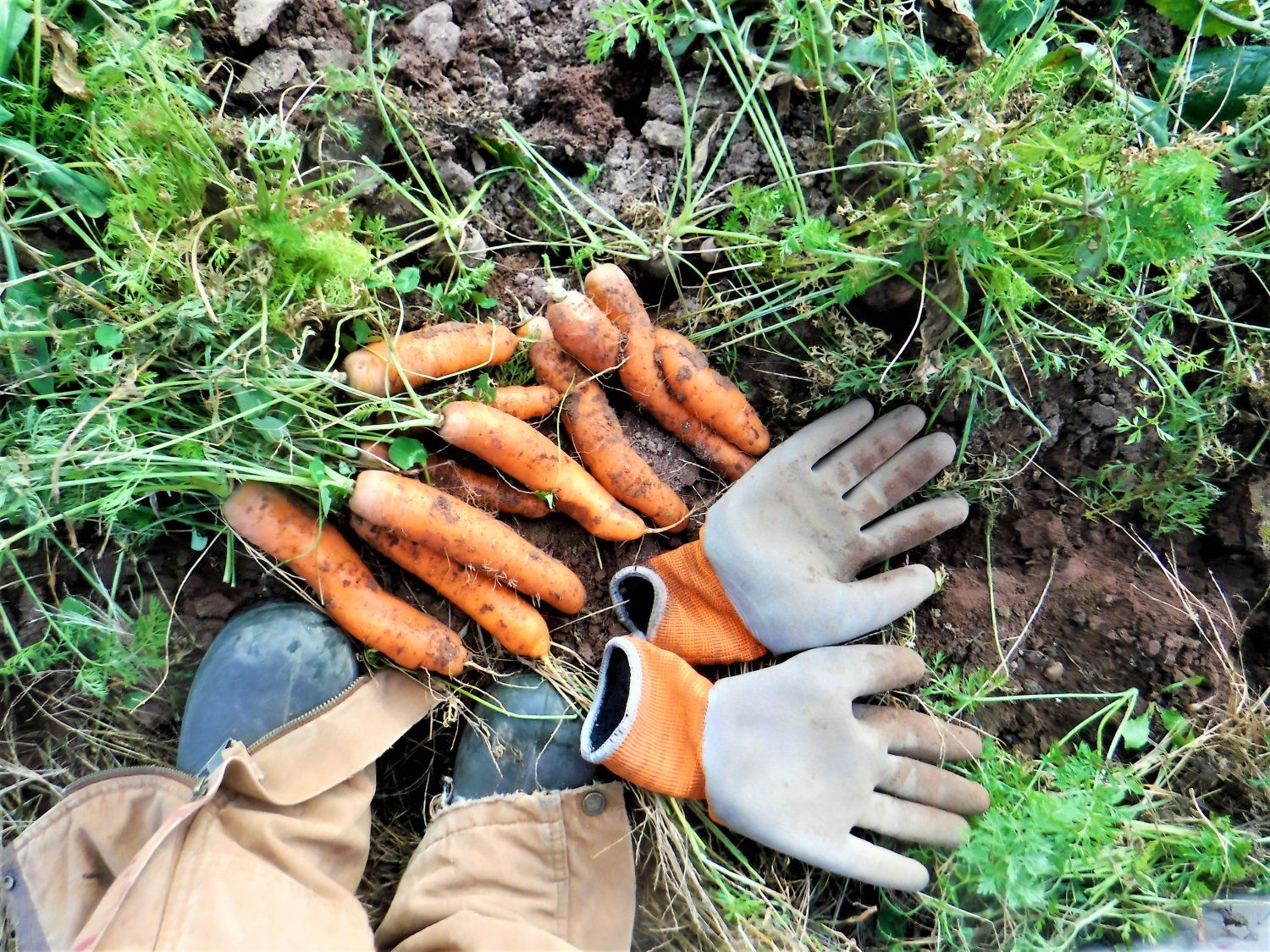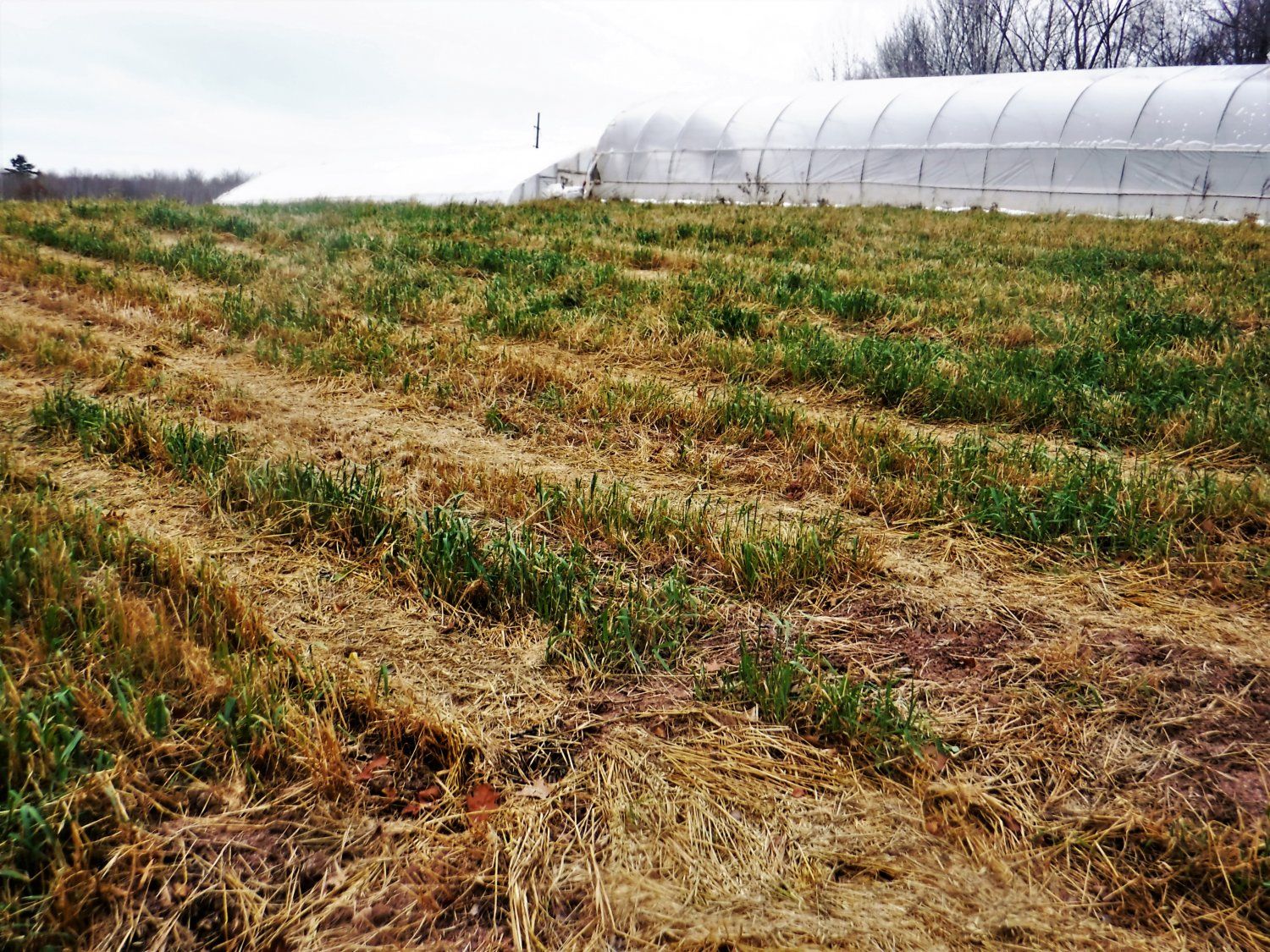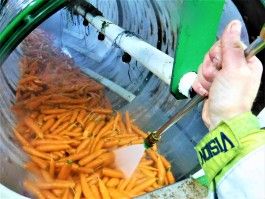We did it!
This week we got the LAST of the carrots harvested and washed up, and we even finished up before the wet, snowy weather settled in on us. Fall carrot harvest is one of those tasks that we have to psyche ourselves up for - it's cold finger season, often wet outside, and there's plenty of heavy lifting. After a long physical growing season, we're feeling worn, but we rally for one final big push before winter is here to stay.
Getting the carrots dug up out of the field is only part of the process - they have to be washed up before going into storage for winter. Spending long hours running the pressure washer in full rain gear at the end of the wash line, wet faced and soaked up to your elbows despite the rain gear, is definitely no ones favorite cool weather task...
BUT CARROTS!! They are so good, and we put so much work into them during the season that it feels like we were cheated if we don't get every last one out and washed before the ground freezes up. Old Man Winter will test our meddle, but every season we buckle down and work till we get them out or the ground freezes up. This year, chock a point up for Team Farmer! Over the last 5 years, I think that puts the score at 3 for Team Farmer, and 2 for Old Winter. Go team!
The relatively long fall we had this season was unnerving from a storage perspective (making sure the root cellar was cold enough for proper storage), but we sure didn't mind the real cold weather holding off till we were finished with the carrot harvest. Every fall, once they are all socked away for winter, I definitely walk with a little more spring in my step again. The last big project is checked off the list for the year - woohoo!
Now that the field crops (besides brussels sprouts, which are still going strong out there) are wrapped up, we have turned our attention to cleaning up the tomato hoophouses. Even though the tomatoes are frozen out and dead now, it's still quite a jungle in there. I wish there was a good way to compost the vines in place to add them back to the soil in there, but for disease management, we are better off hauling them outside when they are finished growing.
Removing the vines as soon as we are able is an organic management technique that helps to reduce disease pressure in those hoophouses. By removing the plant debris, any disease spores that built up on the plants are removed from the hoophouse and composted outside, making for a cleaner planting in 2 years when we plant tomatoes in that space again. Practicing crop rotation like this - along with annual compost applications to build and maintain healthy soil, and managing airflow with passive ventilation - helps us to keep growing healthy crops intensively and sustainably in those hoophouses season after season.
We're happy to announce that starting this week and going until it's all picked, fall spinach will be back in a big way as a veggie you can add to your Winter Veggie boxes! The cool weather has sweetened it up nicely, and I think you will really enjoy it. We'll also be offering 2# bags of onions this week and next week, so you can stock up for Thanksgiving cooking.
The butternut squash is all gone now, but we'll have plenty of other options to choose from for squash this fall, including more pink, orange, and grey kabocha squash we grew with the UW winter squash trials we participated in this summer.
Butternut squash, lovers don't despair - keep your eye out for frozen butternut cubes this winter! The Bayfield Apple Company took all of our dinged up butternut squash and processed them this fall so there will be frozen butternut available later.
Farmers Alex, Ryan, and I have started our crop planning process and have been looking through the new seed catalogs to see what varieties are available for the 2022 summer growing season. I know, I know - we aren't even technically finished with THIS season, but we're already excited to get planning for next season!
Some seed companies that we purchase seeds from have also reached out to schedule meetings to discuss what traits we are looking for in specific veggie types or varieties, what diseases we are seeing, etc. This not only help us find the best varieties they carry for our organic systems here in the Northwoods, but helps them have feedback for the seed breeders so they know what us little farmers are looking for when we purchase seeds.
As a small farm, we're really impressed with that kind of outreach on their end - most of the seed that is grown for production in the US is bred to perform best in irrigated California fields, and as a result, concerns that we small growers in the Midwest have usually are not even recognized. While I know it's only a small voice in the discussion, it feels nice to have our perspective at the seed breeding table.
That's it from the farm this week - have a great weekend, and we'll catch up next week. Be well!
In community,
Farmer Chris
Great Oak Farm

.JPG)
.JPG)
.JPG)
.JPG)



